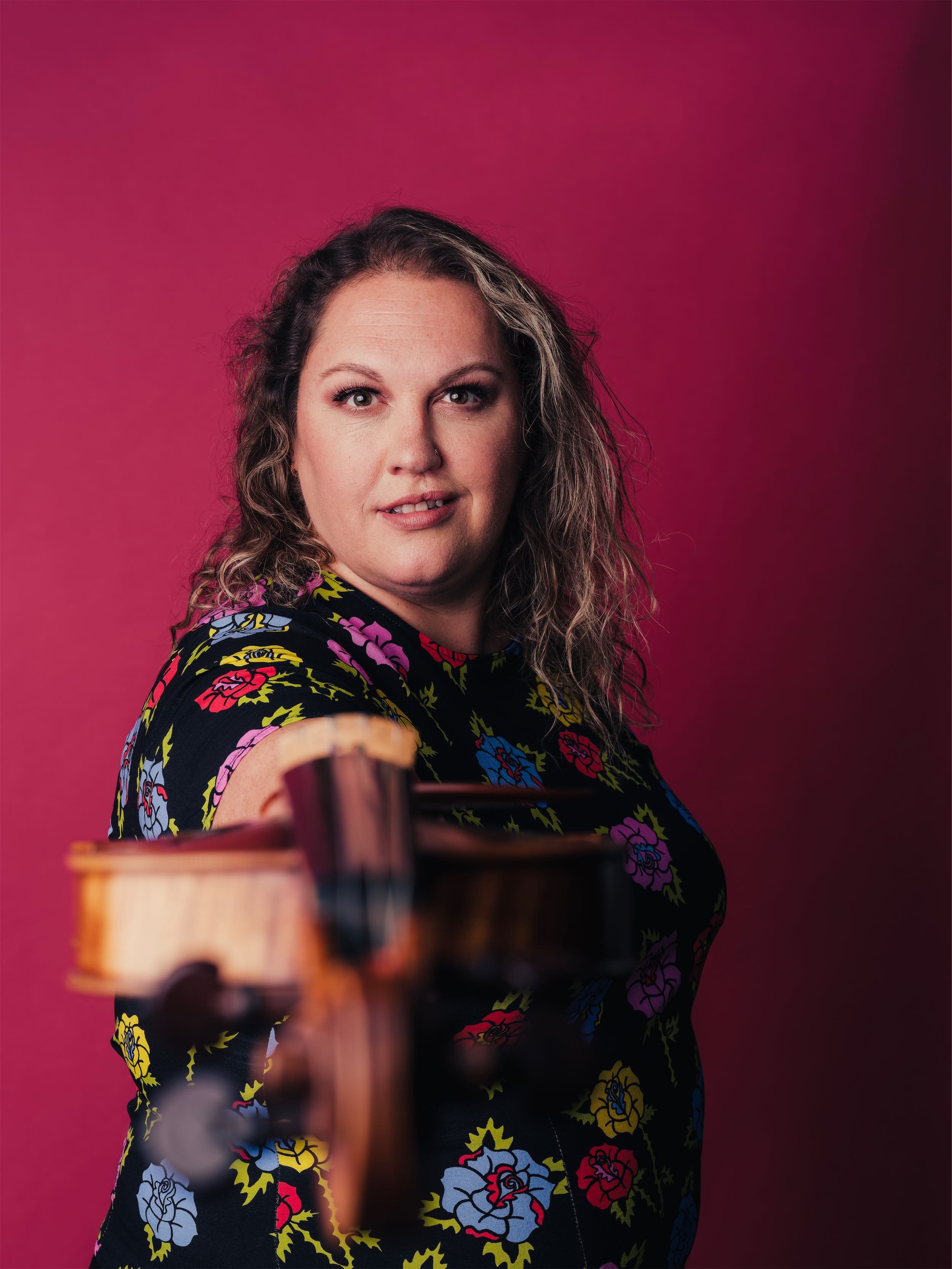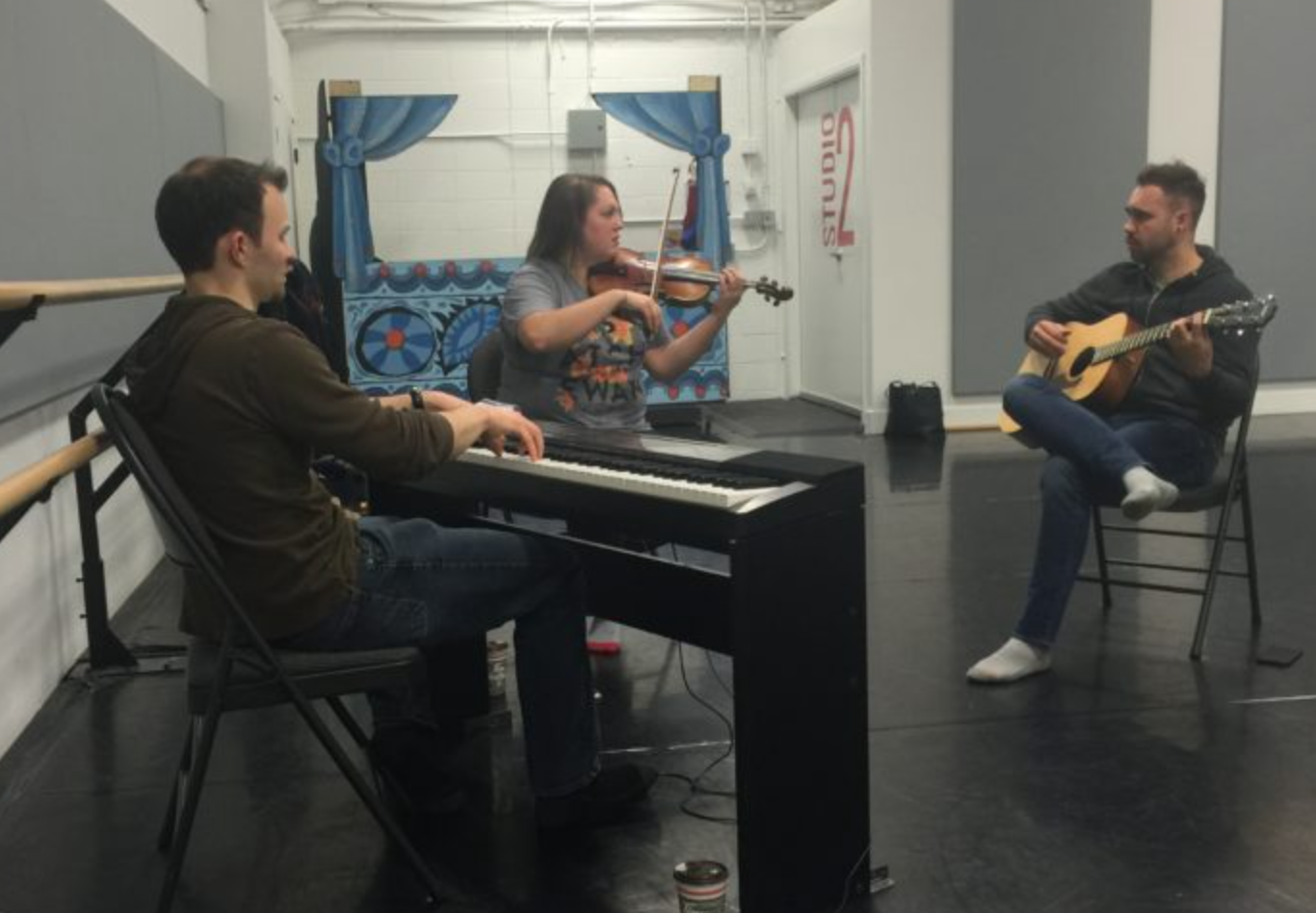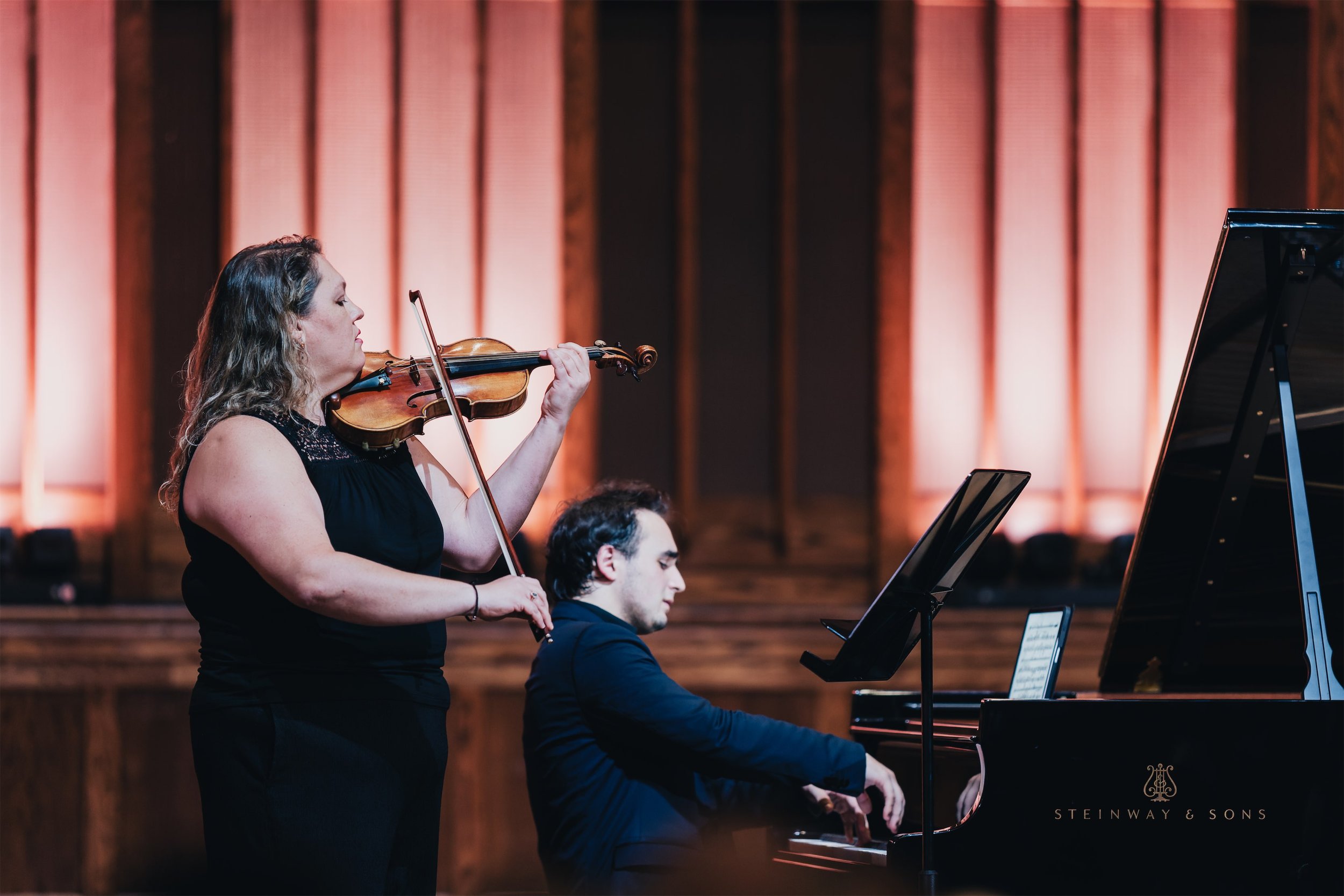Empowering Women in the Arts: A Written Interview with Carissa Klopoushak
As we honour Women's International Month, we had the privilege of engaging in a written interview with Carissa Klopoushak, a versatile musician, advocate for inclusion in classical music, and proud representative of Ukrainian cultural heritage. Through this dialogue, we explore Carissa's unique perspective on gender diversity in the musical landscape, the influence of her Ukrainian identity on her artistic endeavours, and her response to recent global events, particularly the full-scale invasion in Ukraine.
As a versatile musician and advocate for inclusion in classical music, how do you believe gender diversity contributes to the richness of the musical landscape?
I believe that art should reflect society, but that it also has the power to influence and shape it. If the majority of art and music that we engage with is created by one segment of society, then it is not reflective of who we really are. Our lives are made richer when we experience other perspectives, and when we make space for everyone around the same table. I'm guided by music’s universality, its power to connect people and its ability to build communities. As both a musician and curator, my aim is to bring people closer together through meaningful and honest connection and shared experience.
How does your Ukrainian identity influence your artistic voice and your efforts to amplify the voices of women and underrepresented artists.
I think it's impossible – and even strange – to separate an artist from their art. The art that I make, the projects I pursue, my curatorial choices... they all stem from who I am fundamentally. My Ukrainian-ness permeates every aspect of my life, as does my artistry. My Ukrainian heritage has shown itself in many different ways, from my musical pursuits with my band Тут і Там to the subject of my doctoral dissertation “Cornerstones of the Ukrainian Violin Repertory, 1870 – present Day.” I am honoured to have been a part of Ancestors & Elders, produced by Edmonton's Ukrainian Shumka Dancers, as a co-composer and performer. Through this project, I had the privilege of working with a team composed equally of Indigenous and Ukrainian creatives. It's a must-see for all settler Ukrainian-Canadians!
In terms of amplifying voices of women and other underrepresented groups, in some ways it’s quite easy – there’s no shortage of talent. One simply has to notice the imbalance, and strive to do something about it. In my professional life, this can be done in a number of ways: I can choose to program, hire, and collaborate with female and non-binary people as both a performer and a curator. I also feel it's important to be aware of programming trends for organizations I’m a part of, like the National Arts Centre Orchestra, and help encourage diversity wherever possible. I’m extremely lucky to work within like-minded organizations (including the NAC) and with individuals who share this vision and prioritize progress.
The roadblock that many artists and curators face is that audiences won’t necessarily take a chance on a name they don’t already know. More people will turn up to see Beethoven or Hans Zimmer than they will for Clara Schumann or Lesia Dychko. But we can't give in; we have to normalize gender and racial diversity and make it an expectation. So I'd like to issue a respectful challenge to all of us: let's remember to seek out new artists, to trust curators when they program someone you've never heard of, and to kindly question the balance of programming from your favourite concert series, galleries, authors, etc. Once you see unevenness, you’ll always notice.
I believe that art should reflect society, but that it also has the power to influence and shape it.
How has the Ukrainian invasion affected your involvement in the Ukrainian community and music profession, leading to any changes in your artistic or professional direction?
The impact of the full-scale invasion has a profound effect on us all. At first, I found it most productive to help with practical things, like packing boxes of supplies to send to Ukraine. After a little more time, I found ways to use art to further our collective cause, to fight on the cultural front, culminating in a big “Play for Ukraine” concert which I curated through Ottawa Chamberfest, featuring the Gryphon Trio, Ewashko Singers, and many local artists with Ukrainian roots, performing Ukrainian music. The concert, which you can still view on YouTube here, raised over $75,000 for the Canada-Ukraine Foundation.
Since then, I've taken the opportunity to program and highlight Ukrainian composers more frequently, like a gorgeous string work by Bohdanna Frolyak on the opening night of Chamberfest 2021, and invited Ukrainian pianist Illia Ovcharenko to perform a solo recital at Chamberfest including works by Ukrainian composers Silvestrov and Revutsky. It was from this concert that we've shared the video with SVI– a little encore where I joined Illia to perform Kosenko's Dreams.
The full-scale invasion didn't change the course of my career, per se, but it has certainly fuelled the need to share my knowledge of Ukrainian culture, to give it a platform, and to prioritize personal projects featuring Ukrainian music. Currently, I’m working towards an ambitious recording project of music by Ukrainian composers for violin and piano (the subject of my dissertation) and another for Ukrainian chamber music works. A majority of Ukraine’s best known composers are male, and I will be working to highlight a number of female composers, as well as Ukrainians living in the diaspora.
Carissa Klopoushak joined forces with Ukrainian pianist Illia Ovcharenko to perform Viktor Kosenko's "Dreams" from Two Pieces (Dreams, Impromptu) op. 4bis for violin and piano at Ottawa Chamberfest 2023.
Are there any specific Ukrainian composers or women artists who are currently inspiring you in your musical journey and artistic expression?
I think a number of Ukrainians are familiar with our composers, who have composed liturgical music. Many others are quite familiar with the music of Myroslav Skoryk, including his very famous Melody (which I performed for SVI for virtual Malanka last year). I would encourage people to listen to the music of Valentin Silvestrov –very meditative, still music – I also like Barvinsky, Lyatoshynsky, Victoria Poleva, and (Canadian) Anna Pidgorna.
What's next?
Next month, I will perform in a fundraising concert with the Ukrainian pianist Anna Sagalova, from Kharkiv now Vancouver, playing music by Viktor Kosenko and Anna Pidgorna. The concert, called "Spring of Hope," takes place on Saturday, April 13 in Ottawa in support of Ukrainian children.



